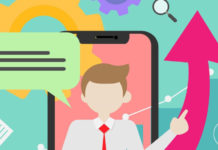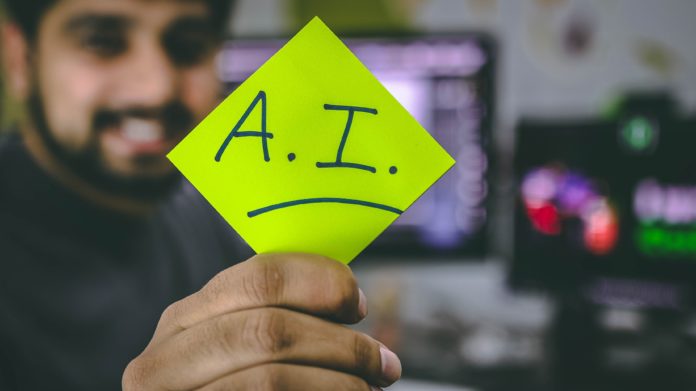Is artificial Intelligence going to be the next horizon? The following is fuelling a dystopian view of what artificial intelligence can do especially in regards to sustainable development. And there is no denying the fact that slowly and steadily artificial intelligence has gained footholds in other niches such as entertainment, healthcare, retail, eCommerce and what not! How the heck could not AI be the next big thing in the technology sector.
Market.us predicts that the Artificial Intelligence Market size is expected to grow at a CAGR of 36.8%, reaching USD 2745 billion by 2032 from its value of USD 129.28 billion in 2022.
The following post focuses on how artificial intelligence and sustainable development goals can go hand-in-hand or what is the Role of Artificial Intelligence (AI) in Achieving Sustainable Development Goals.
What Role AI is Playing in Achieving the Goals for Sustainable Development? 1
Artificial Intelligence and Sustainable Development Goals – How are they interconnected? 1
The Rise of Artificial Intelligence 2
What are Sustainable Development Goals? And how it leads to Severe Economic Growth 3
How can we use AI to achieve Sustainable Development Goals? 5
The Rise of Artificial Intelligence
There was a time when artificial intelligence was considered a dream that can never come true. But today, the table seems to have entirely turned! Several disruptive technologies such as artificial intelligence, machine learning, blockchain, big data, deep learning, genetic algorithms offer significant ways to impact our society, positive or negative – that totally depends on your perception.
I am pretty sure you are well aware of the fact that artificial intelligence is a technology that mimics human intelligence to a great extent. Technically by using artificial intelligence, computer applications can learn from experience via iterative processing and algorithmic training. Moreover, with each round of data processing, artificial intelligence becomes smarter. It essentially allows computers to think and behave like humans, but at much faster speeds and with much more processing power than the human brain can produce.
What makes artificial intelligence or AI-based technologies a cut above?
#1 Automation – Several repetitive tasks, especially the ones which required humans to fulfil can now be done automatically and precisely. Moreover, tech systems do not feel fatigued or have to take breaks like a human employee would need to do.
#2 Analysis – Artificial intelligence has the power to make any appliance smart appliances. These interconnected technologies can analyze data at a much faster rate than humans, allowing it to find patterns much more quickly, and it can also analyze much larger datasets than humans, allowing it to uncover patterns humans would simply miss.
#3 AI maximizes the value of data since it’s able to do a better job analyzing complex, multivariate relationships, without having to take any breaks and with fewer mistakes, making it an incredibly important technology for any business that relies on data and operates at scale.
Further, I would like to mention a handful of specific segments where artificial intelligence has proven to be incredibly beneficial:
- Healthcare – With the rise of AI-based technology, the concept of personalized medicine has taken off in a big manner. Here personal notifications are given briefing the patients about when to take their medicines, and other health/fitness aspects they must be considering.
- Retail – Retail industry is very crucial especially after the release of eCommerce. Artificial intelligence can be used to make the shopping experience more personalized via Amazon’s “You May Also Like” suggestions. Now, these suggestions aren’t just limited to shopping; even the entertainment industry has started offering personalized viewing suggestions via Netflix’s machine learning-driven recommendation algorithm.
- Banking – AI systems are being used to review financial transactions to detect fraudulent activity, assess credit scores with greater accuracy, and automate tasks requiring manual data input and data management.
So there is no denying the fact that AI has been applied to the whole host of services offered worldwide. And the technology hasn’t just been limited to technological development but also enhanced in regards to decision making processes with pattern recognition feature, interactive communication, logical reasoning, and fast development, offering a positive impact among many industries. Now you must be thinking about how artificial intelligence and sustainable development goals go hand-in-hand.
What are Sustainable Development Goals? And how it leads to Severe Economic Growth
Sustainable development is said when the world is able to meet the needs of the present without compromising the ability of future generations to meet their own needs. The terms sustainable development and sustainable economic growth are a bit interconnected as both refer to achieving balance/harmony between environmental sustainability, economic sustainability and socio-political sustainability.
On and all, sustainable economic growth can be considered as building a strong, competitive economy, by ensuring that sufficient land of the right type is available in the right places and at the right time to support growth and innovation; and identifying then coordinating development requirements.
Sustainable development goals can be considered as a collection of 17 interlinked global goals designed as a “blueprint to achieve a better and more sustainable future for all”. Back in 2015, the member states of the United Nation joined hands to adopt a plan for achieving a better future for the world. It doesn’t matter whether your company is big or small, all companies can contribute to the SDGs. You may ask how? Well, it’s quite simple, companies/businesses/organizations are asked to do business responsibly in the first place and then pursue opportunities to solve societal challenges through business innovation and collaboration.
Another Question: Artificial Intelligence and sustainable development goals – how are they interconnected?
Like I said before artificial intelligence, machine learning are technologies that have catered to several economical, environmental and social aspects. Now the question is can Artificial Intelligence aid in achieving Sustainable Development Goals? Well, I would like to answer right here, it’s a big yes! In fact, further below I would like to shed some light on certain sectors among developing countries that are already using AI systems to achieve sustainable development goals in no time.
#1 Education
Education is a must! Its significance cannot be understated at all! I mean the industry not just provides knowledge but also opens several doors for people to settle in resulting in overall sustainable development. Today, education is no longer in the hands of humans. I mean you no longer require someone to guide you all the time. Getting educated without human teachers is probably one of the best innovations AI has come up with in the education sector. And visual learning is the best learning we know so far. More and more kids are found desiring of being educated with the help of voice assistants.
AI systems aren’t just limited to sharing knowledge among students but the technology is also capable of monitoring the student’s performance from time to time. The artificial intelligence techniques powering machine tutors are expected more instead of humans in future.
#2 Agriculture
To enable sustainable development, agriculture development is of prime importance. Imagine how we could live if both developing and developed countries don’t give importance to this sector? Clearly, in hell! With the rise in smart cities, several AI solutions are created to address climate change and other global challenges. Artificial intelligence (AI) can help in detecting diseases in plants and also target weeds. Farmers are now using AI projects forecasting models to predict upcoming weather patterns, thus enabling them to make better decisions.
#3 Health
When we are talking about AI technology, the healthcare sector is a must, especially among developing countries. By using numerous AI tools, healthcare professionals can serve effectively. Artificial Intelligence has the ability to collect and process this data for faster treatment. Several insights can be penetrated into such as if the patient is diabetic or is he cancerous, what treatment he has been referred to in the past. With every passing day, several developed and developing countries like India are found marching towards an AI-driven economy with every passing day. It has partnered with Microsoft to eradicate preventable blindness using an AI-enabled portable eye-scanning device that helps detect retinal diseases. In addition to all of this, AI is being used to deal with the cyber-security attacks in this sector as well.
How can we use AI to achieve Sustainable Development Goals?
#1 For People
Gender equality has become one of the major concerns besides the increasing world’s population among the united nations. Today AI technology or blockchain is found empowering women and girls to deal with the humanitarian crisis and increase their access to socio-economic opportunities. As a result, they are becoming more productive in comparison to men.
#2 For Prosperity
By using AI technologies, easy access can be given to affordable and reliable energy sources or natural resources such as wind, solar, tidal, hydraulic, geothermal, and biomass. It may quite interest you to know that AI technologies could generate 3,000 times more energy than required to meet current global needs among the developing countries.
#3 Planet
Another crucial advantage of using AI solutions is that you can forecast without much hassle. Whether you want to cope with climate change or offer real-time information for early warning of systems and support for greater resilience and climate adaptation, big data or AI solutions can be applied to analyze biodiversity, pollution, weather patterns, and ecosystems.
Conclusion
Many of you have this misconception that AI solutions could be a threat to human existence. I personally don’t feel the same way. All you have to do is in the years ahead, it is necessary to develop an ethical AI ecosystem without human biases and this might alleviate the potential risks of AI in the future.




































